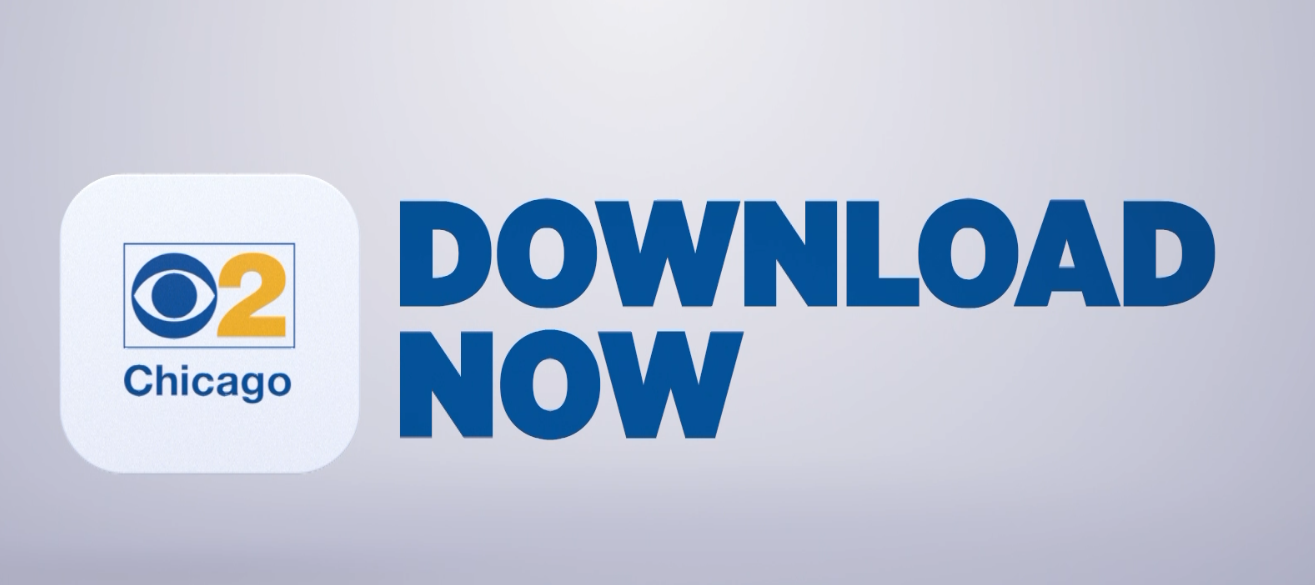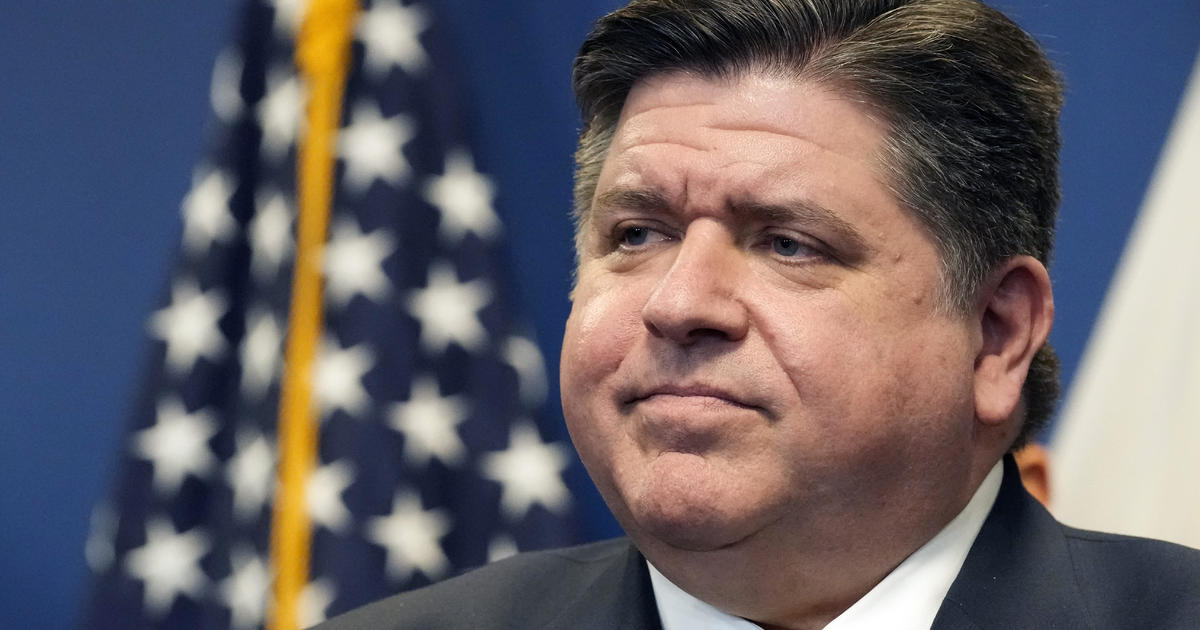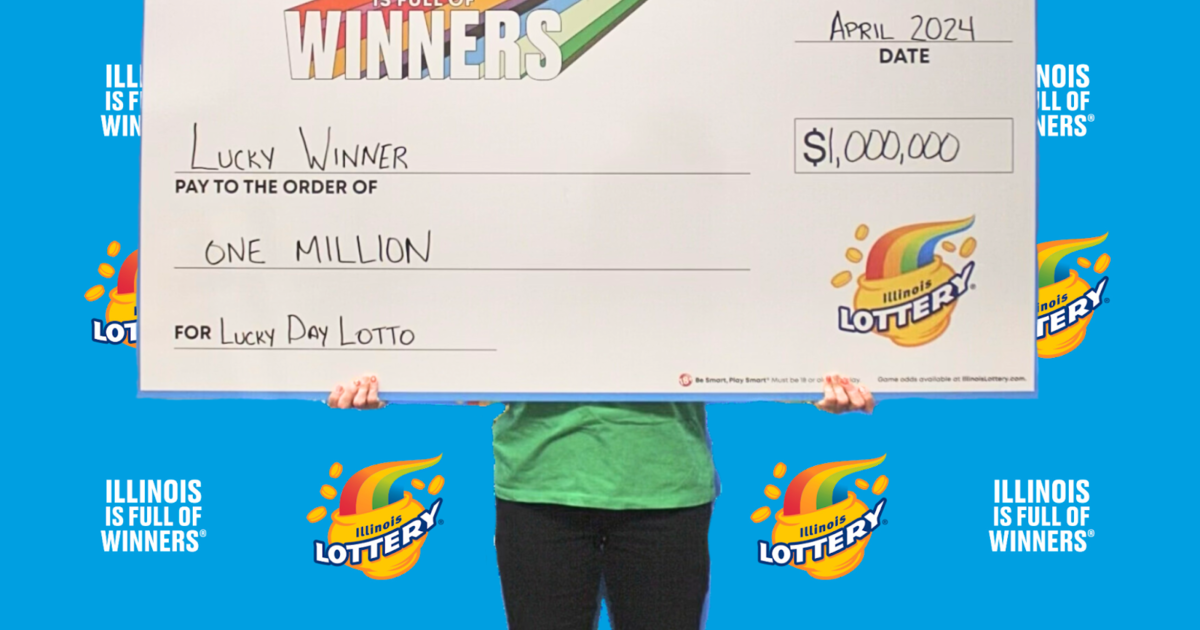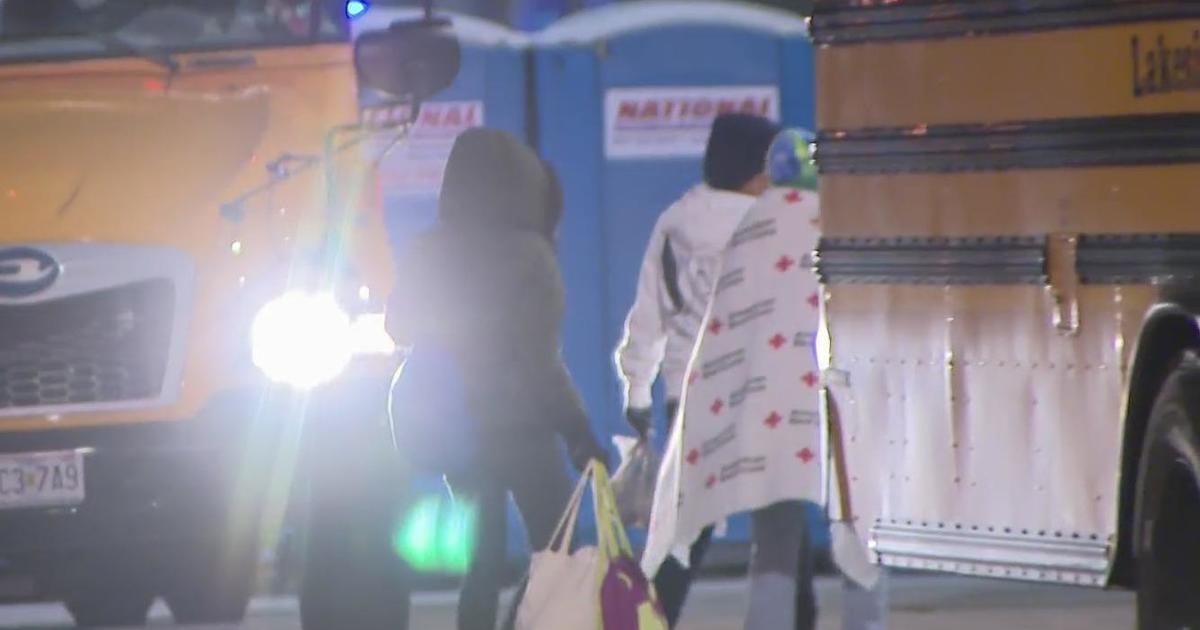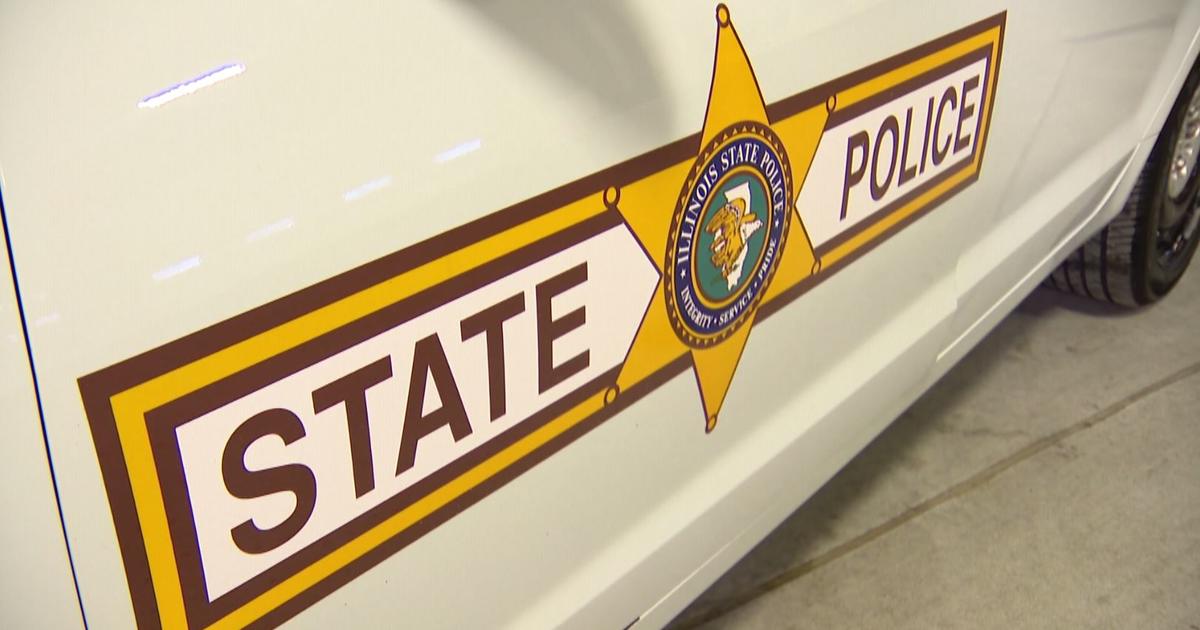Supporters Of Graduated Income Tax Concede Defeat As Illinois Voters Reject Proposed Constitutional Amendment
CHICAGO (CBS) -- Chances for Gov. JB Pritzker's signature plan to switch Illinois to a graduated income tax appear dim, as most voters have rejected the proposed constitutional amendment, and supporters of the tax plan conceded defeat on Wednesday.
With 97% of the votes counted, unofficial results showed 55% of voters said no to the tax. Around 45% voted for the amendment. However, election officials in Illinois have cautioned that the number of outstanding mail-in ballots could change affect the results of close races in the coming days and weeks. Mail-in ballots postmarked by Election Day can be counted if they arrive with election authorities by Nov. 17.
As of Monday morning, state officials estimated there were 300,000 to 400,000 outstanding mail-in ballots in Illinois. Complicating the final result of the income tax amendment is the complicated manner in which it can be approved. Approving an amendment to the Illinois Constitution required one of two things: either a three-fifths majority approval, or 60%, of all who vote on the question; or a yes vote from a majority of the overall number of ballots cast in the election.
Also From CBS Chicago:
- 3 Accused Of Beating Man In Restaurant Restroom After Confrontation About Letting Victim's Daughter Into Women's Room
- Illinois Voters Rejecting Proposed Graduated Income Tax
- Sharpies Bleeding Through Ballots Will Not Impact Your Vote
The Coalition to Stop the Proposed Tax Hike Amendment predicted the income tax amendment will fail.
"When all the votes are counted, we believe there will be more 'no' votes than 'yes' votes, and that will be a win for small business owners, middle-class families, family farmers, retirees, and large employers. In this election, Illinois voters sent a resounding message that with an $8 billion deficit and two massive tax hikes in the last ten years, we cannot trust Springfield Politicians with another tax hike," spokeswoman Lissa Druss said in a statement.
Vote Yes For Fairness, the pro-amendment group funded entirely by Pritzker, conceded defeat in a statement Wednesday morning.
"We are undoubtedly disappointed with this result but are proud of the millions of Illinoisans who cast their ballots in support of tax fairness in this election," chairman Quentin Fulks said in a statement. "Illinois is in a massive budget crisis due to years of a tax system that has protected millionaires and billionaires at the expense of our working families, a crisis that was only made worse by the Coronavirus pandemic. Republican legislators and their billionaire allies who brought us the dysfunction and pain of the Rauner years continue to stand in the way of common sense solutions, choosing instead to play partisan games and deceive the working families of our state. Now lawmakers must address a multi-billion dollar budget gap without the ability to ask the wealthy to pay their fair share. Fair Tax opponents must answer for whatever comes next."
Those for and against the constitutional amendment waged multimedia, multimillion dollar campaigns to sway voters on the tax. The ballot measure would repeal the state's constitutional requirement that the state's personal income tax is a flat rate across income. Instead, the ballot measure would allow the state to enact legislation for a graduated income tax.
The ballot measure does not set new income tax rates, but lawmakers already have approved legislation for what the new rates would be if voters approve a graduated income tax.
In June 2019, Gov. J.B. Pritzker (D) signed SB 687, which would change the state's income tax from a flat rate to six graduated rates beginning on January 1, 2021. Click here for a look at the breakdown. The governor said the rates approved by state lawmakers would lower taxes for 97% of Illinois taxpayers.
The current 4.95% tax rate would be cut to 4.75% for the first $10,000 of income for single and joint filers. Income between $10,000 and $100,000 would be taxed at 4.9% for single and joint filers, and the rate would stay at 4.95% for income between $100,000 and $250,000 for single and joint filers. Corporations would pay 7%. It would set up brackets, like the federal government and 32 other states. The tax rate would also increase with income.
For single filers, income between $250,000 and $350,000 would be taxed at 7.75%, income between $350,000 and $750,000 would be taxed at 7.85%, and income above $750,000 would be taxed at 7.99%. For joint filers, income between $250,000 and $500,000 would be taxed at 7.75%, income between $500,000 and $1 million would be taxed at 7.85%, and income over $1 million would be taxed at 7.99%.
The change would generate an extra $3.4 billion in revenue, according to Pritzker. He promised to use it to fix Illinois' finances. Past-due bills total nearly $8.1 billion and there's a $140 million shortfall in what's necessary to cover promised pensions to state employees. The budget that took effect in July left a $5 billion gap, with lawmakers hoping for a second federal-relief package to fill it.
But those against it said the tax plan as a "blank check" and there's nothing in the amendment that requires fiscal restraint. They contend Democrats overspent and skipped pension payments in the past two decades and contributed to a two-year budget stalemate that put Illinois so deep in the hole.
The group Vote Yes for Fairness spent more than $56 million on its campaign, all from Pritzker, who is a billionaire. A group backed by labor and other advocacy groups raised $1.9 million. On the other side, the Coalition to Stop the Proposed Tax Hike Amendment had more than $48 million in the bank — 97% of it coming from Chicago hedge fund manager Ken Griffin.
There are two PACs supporting the tax: "Vote Yes For Fairness" and "Vote Yes For Fair Tax." Together they have more than $30 million cash on hand as of their latest quarterly report:
*Vote Yes for Fairness: $29,073,394
*Vote Yes For Fair Tax: $1,541,259
There are two main groups fighting against the graduated income tax: "Coalition To Stop The Proposed Tax Hike Amendment" and "Say No to More Taxes." Together they have more than $30 million on hand.
*Coalition To Stop The Proposed Tax Hike Amendment: $29,620,927
*Say No To More Taxes: $818,950
The top donor in opposition of the new tax is, somewhat unsurprisingly, billionaire hedge fund manager Kenneth Griffin. He gave more than $46 million. The next biggest donor, Pat Ryan, is also a billionaire. Another billionaire, who also happens to be J.B. Pritzker's cousin, Jennifer Pritzker, also donated three quarters of a million.
The state Supreme Court invalidated a graduated tax approved in the 1930s. A flat tax of 2.5% on individuals and 4% on corporations in 1969 came months before a convention began writing a new state constitution. Delegates considered a graduated tax but ultimately were wary of asking voters to endorse a constitution with a new tax setup. Subsequent plans failed before Pritzker, who campaigned on the issue in 2018, got approval to put the question on the ballot.
The graduated income tax amendment would not directly affect the state's ability to tax retirement income. In order to tax retirement income the Illinois General Assembly would take a separate vote to tax retirement income. Opponents of the graduated income tax plan said it will hurt small businesses, and the Illinois Policy Institute, a conservative think tank aligned with the Republican Party, filed a lawsuit challenging the ballot language of the proposed constitutional amendment, but a judge rejected their request for an injunction.
Opponents suggested the proposal could open the door to lawmakers taxing some retirement income.
Laurence Msall of the Civic Federation, which is neither for nor against the tax proposal, said there were things associated with the tax that weren't really defined.
"The Civic Federation has concerns about how the tax would be applied," Msall said. "We also have concerns about how much money this tax may generate."
One of the claims was that there would be an increase in taxes on over 100,000 small businesses. Msall said that's unclear.
"That requires more data than is generally available in order to understand who exactly is going to pay that," he said.
One ad said the graduated income tax will result in a tax cut for millions of Illinoisans. Msall said that is true, but with one big caveat.
"I think the projections are that technically, 97% of those people will pay about the same – a 4.95% rate - or less," he said.
For most, he said, it would amount to 0.05 percent less. How is income taxed? The rate jumps 3% for those making more than $250,000, but only income above that $250,000 mark would be affected.
"You'll pay the higher rate for the first dollar over $250,000," Msall said.
The price tag for advertising both for and against the graduated income tax has been steep. Gov. Pritzker himself put more than $50 million of his own money into campaigning for the pro-side.The anti-tax side also received tens of millions of dollars – most of it coming from businessman Ken Griffin.
"Springfield politicians just can't control themselves when it comes the opportunity of raising taxes. When you have the number and the governor that will sign it, they will do it," said Greg Baise of Illinois Ideas.
